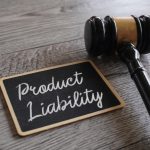Often concealed from the public, cartel operations can imperil markets and pass significant fees on to consumers without their knowledge. The effective investigation of cartels – and organisations’ willingness to cooperate with these investigations – is therefore essential. Natalie Greenwood, partner at Euclid Law, takes a deeper look at cartel law in this article, outlining what is defined as a ‘cartel’ under EU law and how companies can best respond if they find themselves embroiled in an investigation.
To set a foundation for this discussion, what are the key principles governing cartel investigations in the EU?
The term ‘cartel’ is used to describe an agreement – typically secret – between two or more businesses not to compete with each other. Cartel participants will generally be involved in fixing prices, limiting production, sharing customers or markets or engaging in bid-rigging or other similar conduct.
However, it is even possible that the exchange of competitively sensitive information may be sufficient to be classed as cartel conduct. For example, the Commission fined a number of banana suppliers for exchanging quotation prices for bananas which they then quoted to customers, but which were not the actual prices charged to individual customers.
In the EU, the European Commission has extensive powers to investigate and enforce EU competition law against cartel participants. National competition authorities across Europe have similar powers to enforce both European (if in the EU) and domestic competition law.
How are these investigations carried out and how is information gathered?
Competition authorities can launch investigations based on information they receive from parties to the investigation (leniency applications in exchange for reduced fines), third-party complaints or their own data, including from data analysis teams that scour public information for specific patterns which may indicate anti-competitive behaviour.
A competition authority may carry out unannounced inspections (known as dawn raids) at the start of its investigation – often at various companies and locations at once. Competition authorities’ powers during a dawn raid are extensive and obstruction of inspections can result in significant fines. In 2019, the musical instruments company Fender was fined £25,000 by the UK’s competition authority because one of its employees removed 10 of his notebooks from the premises during the dawn raid, hiding them at the flat of a junior employee.1 The Dutch competition authority fined a company €1.8 million for obstruction as a number of employees left several WhatsApp groups and deleted chat conversations.2
In addition to dawn raids, competition authorities will gather information through extensive requests for information as well as interviews with relevant individuals.
If a competition authority decides to take the case forward, it will present the parties with a Statement of Objections and grant them with access to file, giving them an opportunity to defend themselves against the case and evidence put forward against them. Following the reply, the competition authority will issue its decision, including the fine.
It is also possible for the parties to seek a settlement to terminate the investigation, which will generally involve an admission of guilt in exchange for a reduction in fine.
In the context of EU competition law, what are the typical sanctions or penalties that companies may face if found to have participated in a cartel?
The potential sanctions are serious. The European Commission can impose fines of up to 10% of the previous year’s worldwide turnover. From 2020 to September 2023, the Commission imposed €2.224 billion in fines (down from over €8 billion in 2015-2019), with the largest single cartel fine against Daimler in 2016 for just over €1 billion for its role in the trucks cartel – a cartel between truck makers that were found to have colluded for 14 years on truck pricing and on passing on the costs of compliance with stricter emission rules.
However, there may be additional costs to participation in a cartel. These include individual criminal sanctions in countries including the US, Canada, the UK and Denmark, and director disqualifications in countries including the UK, Ireland or Sweden. In the UK, the Competition and Markets Authority can seek the disqualification of directors for a period of up to 15 years and it has been using its power regularly, securing 25 disqualifications since February 2019. Ignorance of competition law is generally not an excuse.
Companies may also be banned from bidding or entering a public procurement tender for participation in a cartel. In 2021, the European Commission sought to exclude 10 banks from tendering to participate in bond sales of the €800 billion recovery fund due to their involvement in competition law infringements.
Companies also face significant reputational damage for breaches of competition law, in addition to the business and management time (and costs) required to respond to an investigation.
Finally, customers may choose to launch civil claims for damages against a cartel participant. These claims are often now collective actions that aggregate the damages claims by affected parties against a particular business found to have infringed competition law. An increasing number of European countries are introducing collective actions, making it easier for these types of claims to be launched. For example, in addition to the nearly €3 billion in fines from the Commission for the truck makers in the trucks cartel, these manufacturers are now facing damages actions in the billions brought by their customers who are seeking money back for any overcharge resulting from the cartel in a number of European countries, including the UK, the Netherlands, Spain and Portugal.
Can you explain the role of leniency programs in EU cartel investigations?
Cartels tend to be secret agreements, which means that it is difficult for competition authorities to detect them. To combat this issue, leniency programmes offer companies involved in a cartel that bring this to the attention of the authorities and hand over evidence either total immunity from fines (if the company is the first to ‘blow the whistle’) or a reduction in fines, with lower reductions in fines available for subsequent leniency applicants.
However, as a result of the growth in private damages claims which may result in leniency applicants having to pay large sums to their customers for cartel participation, as well as the growth in cartel enforcement worldwide, the leniency incentives may not be as clear-cut for firms as they previously seemed.
What would your first advice be for a company that is facing down a newly launched cartel investigation?
My first advice would be to take it seriously and engage good lawyers! Senior management attention and support is paramount, together with a small team that can take decisions on the day-to-day matters and escalate strategic decisions quickly and appropriately.
There will be many strategic decisions to be taken early on. If you are being dawn raided, it is possible that there is already a leniency applicant that will benefit from total immunity. However, you may still be able to apply for leniency and receive significant fine reductions, but only if you admit liability and are able to provide the competition authority with ‘significant added value’ compared to what a competition authority already has at the time of submission. The earlier you provide this information, the more likely you are to be earlier in the ‘leniency queue’ and benefit from greater reductions in fines. You will therefore need to get a good grasp of your company’s role in any potential infringement quickly to feed into early strategic decisions.
However, prevention is better than cure. Make sure your business is aware of competition law with regular training, in particular in any high-risk areas where contact with competitors is frequent – and ensure that your business knows how to react in the event of a dawn raid.
About Natalie Greenwood
Natalie Greenwood is a partner at Euclid Law with over 18 years’ experience advising on all aspects of EU and UK competition law. Natalie is dual-qualified in England & Wales and Spain and advises on a broad range of matters including cartels, mergers, joint ventures, distribution issues, behavioural antitrust, foreign direct investment and competition litigation. Natalie joined Euclid Law in 2019 after 5 years’ working in an in-house competition legal team and, prior to that, for a Magic Circle law firm.
About Euclid Law
Euclid Law is a boutique law firm focusing only on competition law and foreign direct investment. With offices in London and Brussels, in-depth experience and a network of contacts in key jurisdictions around the world, Euclid Law has the ability to advise clients across Europe and beyond on all aspects of competition law and foreign direct investment.
Natalie Greenwood
Partner, Euclid Law
34 Settles Street, London, E1 1JP, UK
Tel: Tel: + 44 20 3816 3913
E: natalie.greenwood@euclid-law.eu
www.euclid-law.eu








